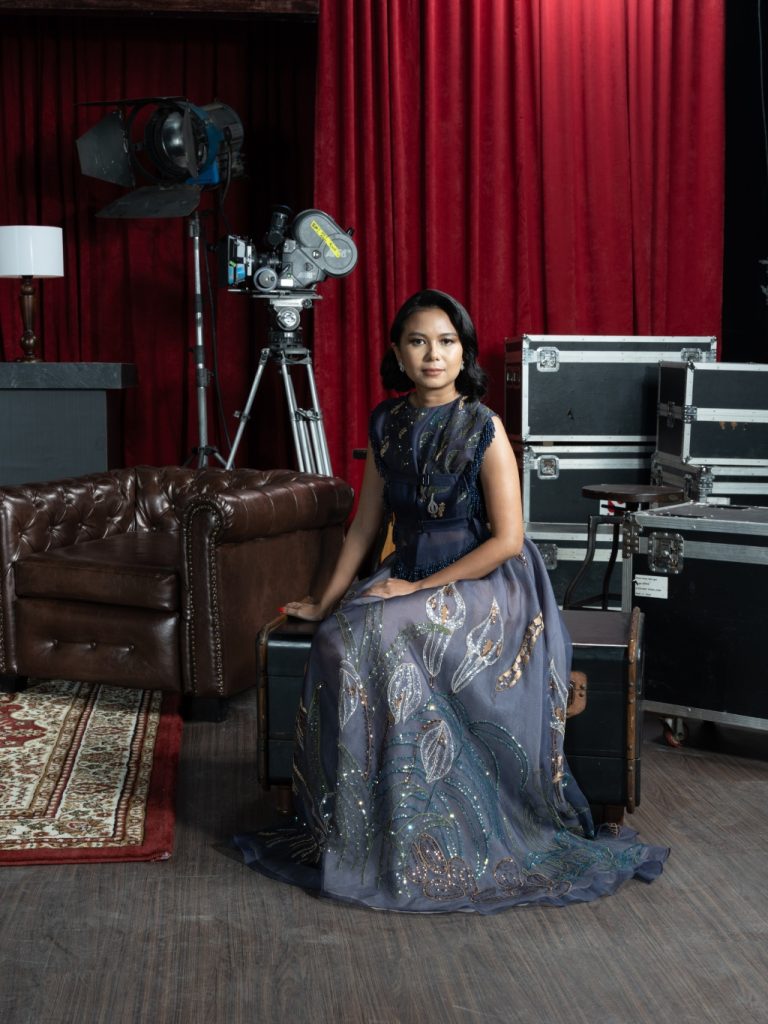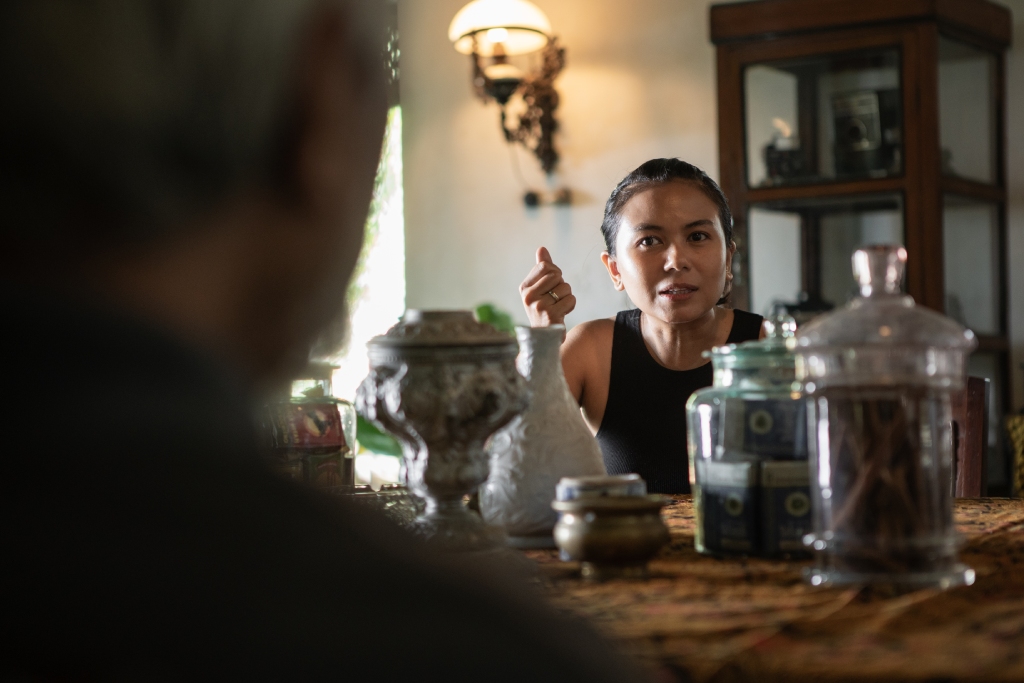
Cigarette Girl is a different kind of historical series, says its co-director Kamila Andini, one that’s a modern story about the past, but still portraying plenty of drama and romance. “For historical films and series in Indonesia, a lot of them are about heroes’ stories and independence movements and things like that,” she explains. “It’s rare for us to learn our history from different angles.”
Based on the eponymous book by Indonesian author Ratih Kumala and first published in 2012 in Indonesian, Cigarette Girl, or Gadis Kretek, is finally seeing its screen adaptation come to life. Directed by both Kamila Andini and Ifa Isfansyah, who are also a married couple, the series is a historical thriller and epic romance that spans two generations and time periods, beginning in the 1960s. The five episodes follow a woman named Dasiyah who pursues perfecting her formula for kretek, a type of Indonesian cigarette made with tobacco and cloves, while coming up against social conventions and as political upheaval unfolds in the background. Starring Dian Sastrowardoyo, Ario Bayu, Arya Saloka and Putri Marino, Cigarette Girl begins streaming on Netflix this month, after a portion of the series premiered at the Busan International Film Festival in October.
The culmination of a 10-year process to adapt the book, which picked up pace in the last three to four years, Cigarette Girl explores not only the transformation in Indonesia of the cigarette and the larger agricultural industry from independent home-based operations to consolidated large-scale production, and political transitions and instability, but also an intimate personal and family story and the revelation of long-held secrets, Andini shares. “[The characters] find out that there are so many things that we as young people in Indonesia don’t even know,” she says via video call. “There are past hurts that I think we need to talk about, but more than that, we need to feel it.”

To Andini, a prolific Indonesian director known for films such as The Mirror Never Lies (2011), Yuni (2021) and Nana (2022), viewers today are more sophisticated in their preferences and expectations—“The audience now hunger for something new and fresh, with vision, detail and passion,” she says—and that’s exactly what she delivered with Cigarette Girl. “Seeing how much room I could have to make and craft the story, I felt like I was making five films instead of one series,” she quips.
The release of Cigarette Girl follows decades-long growth and maturation of Indonesian media, from a time, particularly during Suharto’s presidency, when local productions were few and far between, to a proliferation of young filmmakers making independent films and short features, and an explosion of content after the Reformation Era, Andini elaborates. Even the medium has evolved massively, from physical tapes and discs to over-the-top and streaming platforms. “Right now I can say that it’s actually the peak, the most amazing time for an Indonesian creator to create something,” she says. “With many more choices…we will be able to make different kinds of stories for each platform with different kinds of scale and ideas, and that’s actually amazing.”



With that power, Andini continues to seek out stories that speak to her, finding personal connection to characters and women-driven narratives that reflect herself, her community and her lived experiences in a way that is honest and honours diversity. From watching works by Asian auteurs such as Yasujirō Ozu, Yasmin Ahmad, Tsai Ming-Liang and Kim Ki-duk, Andini found their breadth and the vast opportunity they inspired exhilarating. “I found that that’s freedom, in the way that I felt that liberation when I saw Asian cinema—I felt that I saw myself and my people too. It began to make sense, and I was inspired to want to do that as well,” she says.
“I want to talk about my story, my country and my culture. It started from that, and it’s been going on until now.”
